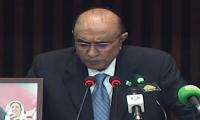As Pakistan progresses, the fourth pillar of democracy has an ever-increasing critical role to play in nation-building, forming narratives and stimulating change – not only within the country, but also how it is perceived beyond its borders. On this 73rd anniversary of the country’s independence, it is imperative to appraise the role of the media as well as the differing elements from the time of independence to Pakistan of today.
The role of media is essentially based on a binary; such that its positives and negatives are simultaneously working within and without their own spaces, creating new dimensions and infringing upon formers. That one would assume that media only plays a certain role, would in essence, take away the entirety of the functions and the services it affords to its viewers and the public at large.
Nevertheless, one must not deprive the conversation of the implications of a certain way media is used and how it has evolved over the years. From a single, state-owned Television Channel and Radio, to the ushering in of the private networks with dozens of news, entertainment and educational channels on one hand, and heaps of English and Urdu dailies – that are still read in Pakistan amidst a gradually-dying media in the West on the other – the news and updates steer their way inside Pakistani households all over the country. Here, the onset of Social Media must also be accounted for; bearing that it has impacted not only the Millennials (Born between 80’s and 90’s) and Generation Z (mid-to-late 1990s), but also the Baby Boomer Generation (1965 to 1980).
The commentary on today’s media would be incomplete – and perhaps, the privileges that the media of today enjoys cannot be fully appreciated in the absence of the very journey that paved the way for Pakistan. At the time of the Pakistan movement, newspapers such as Zamindar by Maulana Zafar Ali Khan who is also known as the “Founder of Journalism” in Pakistan, was the pioneer in narrative-building and dissemination of the sentiments of the Muslims of India. Prior to this, periodicals such as Tehzeeb-ul-Ikhlaq by Sir Syed Ahmed Khan were used as a tool to revive not only the lost glory of Muslims by educating them about themselves, but also countered the British Raj. And of course, the discourse on journalism would be incomplete, if the marvels of Ali Brothers are not mentioned; their English and Urdu Dailies, Comrade and Hamdard respectively, were known for the ferocious writing style and their role as the defendants of the interests of Muslims. Quaid-i-Azam’s very own Dawn which he published to express the interests of Muslims owing to a language barrier between Indians and the British, and many others such as Nawa-i-Waqt and Al-Hilal by Maulana Abul Kalam Azad and Jang established by Mir Khalil-ur-Rahman, were used as the mediums to fend-off the vitriol and propaganda against Islam and Muslims of the sub-continent.
At a time, when finances were limited, a colonial setup was in place and rule of law did not exist, the media of the time was instrumental in revitalizing the dormant Muslims, educating them about their history and guiding them about their future, and creating space for them where necessary, with the only available medium at the time i.e. Newspapers and magazines.
In today’s world, however, the medium and devices that bring news and entertainment to the masses has also evolved, at an unprecedented frequency and in ways unimagined previously. The technological revolution coupled with the digitization of information, and what is commonly referred to as information revolution has been an effective trigger as well as a tool to globalise the world politics, economy and culture. Global Digital corporations and companies such as Google, Microsoft and Amazon have streamlined the information mediums through their software development; whereas Apple, Samsung and IBM alongside multiple others have made headway in the hardware department. The advancement in both these domains has, in effect, transformed information in three ways – firstly, information has not only become more accessible but can reach the masses within seconds as opposed to hours and days; secondly, information that has been revealed can longer be contained or confined to a certain region; and thirdly, the targeted audience can be reached at the touch of a button virtually at zero cost to the producer. This has had both negative and positive implications for the way media is used and information is disseminated.
Within Pakistan, the media has played, both a pronounced as well as a vicarious role in shaping the newer generations. Ranging from fads in fashion and clothing industry, the craziness in Pakistani weddings, adoption of new trends – all of these can be seen taking place visibly. Where a semblance of foreign culture as well as exuberance percolates into the Pakistani culture and ethics, it is hardly repulsive – however, when it effects changes within the moral fabric of the society in terms of materialism, distancing from religion and revulsion for one’s own culture and traditions, does it become a negative influence. For many Pakistanis, that becomes a cause for concern. After all, the country still has a mass urban-rural divide, and which will remain so with the older generations still in control.
Another aspect that warrants discussion, and that which has an even bigger role to play within the politico-security circles is essentially the unwarranted and gratuitous commentary that has somehow become a normal. The discussion and the conversation on television and opinion editorials is not only supposed to educate and train the upcoming generation on issues that concern them, but also enlighten them to explore new ideas and think in a multi-dimensional way. Unfortunately, there has seeped in a culture of dispersing myopic ideas and thoughts which can be seen appearing vividly in conversations on either of these platforms. Discussions pertaining to security and politics can go on for hours, with hardly any contribution to the society or proffering any workable solutions. Perhaps, gone are the days, when columnists and anchors were known for their vast knowledge and understanding of issues, as now baiting ministers, politicians, former military and civil bureaucrats and fellow journalists into uttering something that can essentially form a breaking news or bring ratings to the show is the new norm.
Similarly, the dystopian and hopeless columns are another bane which are used by their authors as a way to peddle the same narrative as they have been doing for years on. At a time when the country is going through a difficult phase, perhaps a positive thought would do wonders. In her book, The Secret, Rhonda Brynes stresses on the use of positive thoughts to manifest them into reality. While one may not be a firm believer in metaphysics and mysticism, the firm belief in Allah that “He is what we expect of Him” could essentially bring forth some much-needed positiveness. Nevertheless, one has to appreciate where the discussion highlights the weaknesses that require rectification. In any case, the conduct and applied methodology can always be encouraging, rather than rendering the reader unnecessarily upset.
As Pakistan progresses, it will see an even bigger boom of media revolution. The example of this can be seen through two different lenses. One, the number of internet and mobile users has increased exponentially in the last decade as a result of increased connectivity and data services all over the country. Secondly, Pakistan has a huge youth bulge which in itself will generate multifold internet and mobile phone users. Combined, their power can be seen – especially on social media where it can be seen manifesting itself increasingly more so, as a large stratum of Pakistani society got access to cheap and affordable smart phones, computers and economic data services.
In both short and long term, the government and concerned authorities will need to regulate these services in accordance with international standards, keeping in view that social media through many different applications has become a source of income for many. Social Media Bloggers, Artists and Personalities are also moving onto mainstream media such as Television and this is a positive for Pakistan as many new entrants to the field can express themselves through the former to route themselves into the latter. The new media age is already here, and must not be retrained through red-tapism or superfluous regulatory laws.
Senator Saleem Mandviwala apprised Bilawal of the issues in the Senate
Rabbani said the report of Faizabad Commission chose to close the matter while avoiding further controversy and...
He said political stability is a must for capitalizing on this rare opportunity in the form of Saudi Arabia’s...
At the moment, the foundation is managing 13 model emergency rooms across the country
The report states that due to importation of expensive wheat by government agencies, the national exchequer lost 31.32...
The fashion designer marked her attendance and assured the court that she would appear at each hearing of the case







